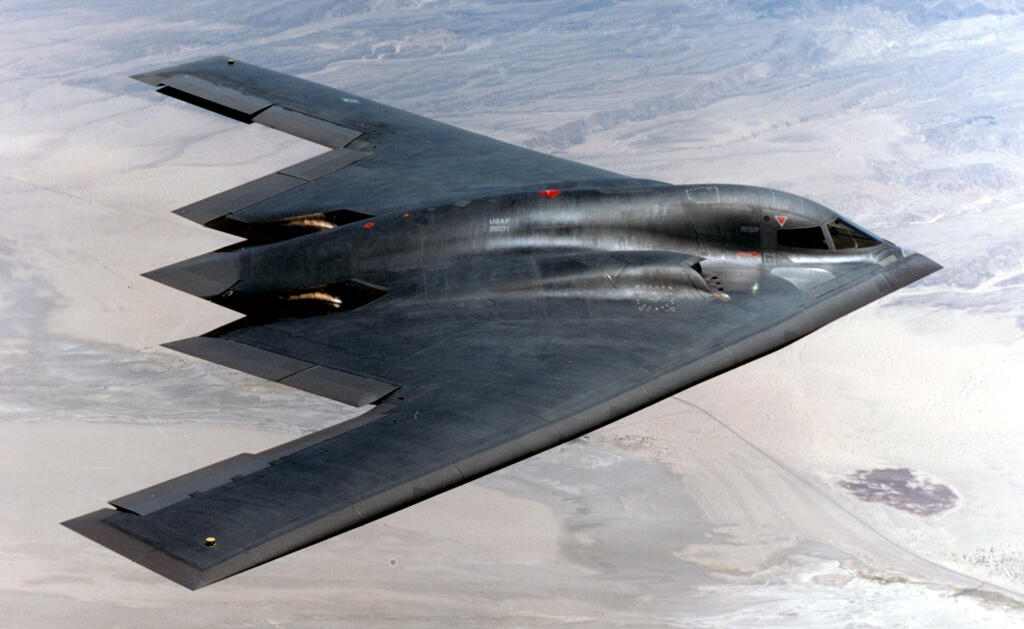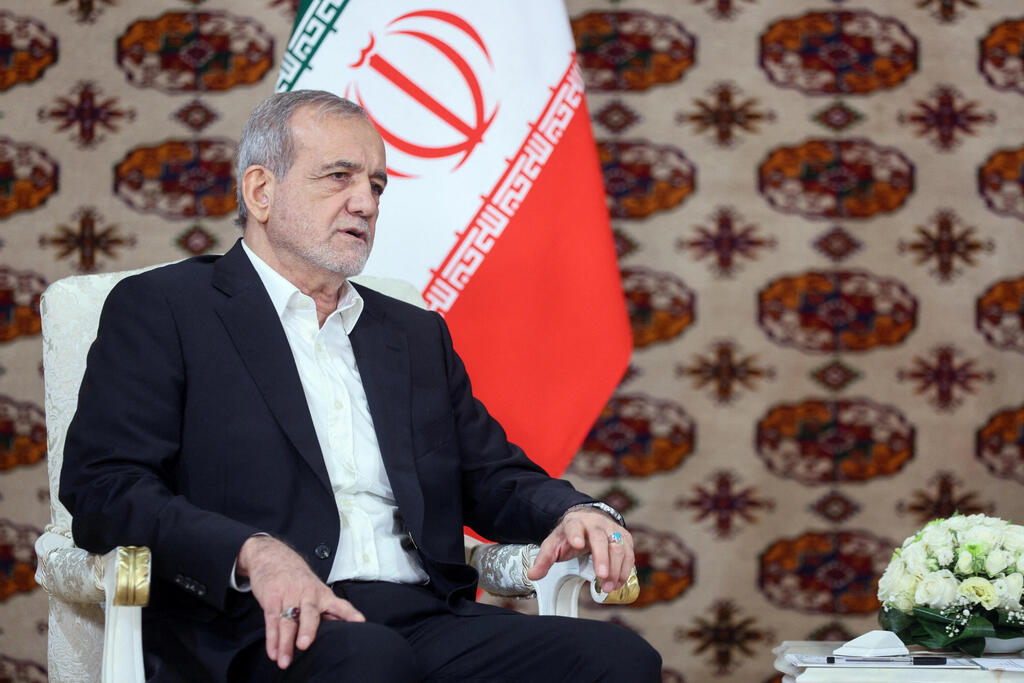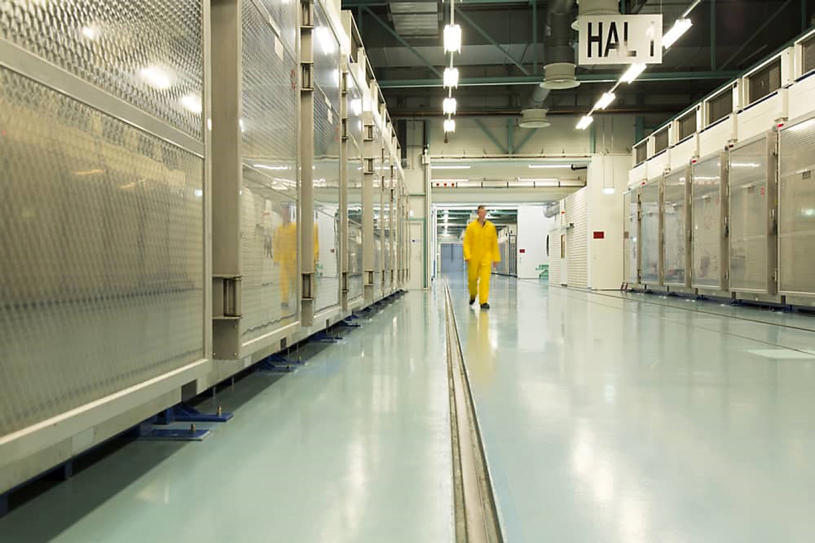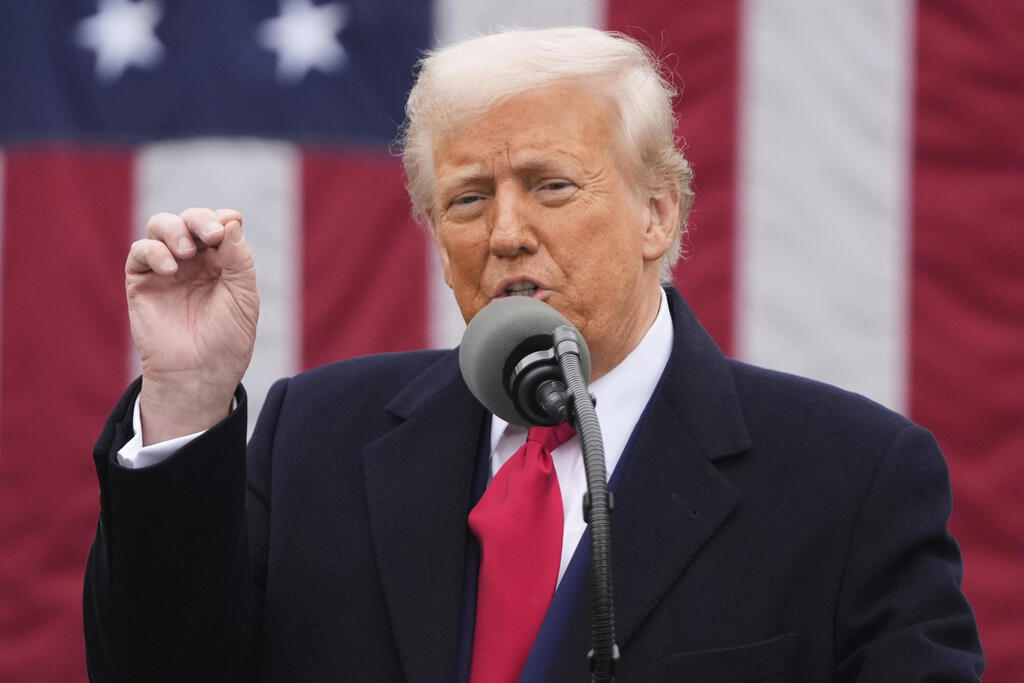Getting your Trinity Audio player ready...
As the May 2025 deadline for a new nuclear deal with Iran approaches, the Middle East faces heightened tension, with the United States and Iran engaged in a high-stakes standoff over Tehran’s nuclear program. However, Indian General Satish Dua said, “It’s an oversimplification to view this as just the U.S. and Iran alone.”
He noted that the Middle East is now a “very complex arena, especially since President Trump took office. Geopolitical and economic dynamics are shifting rapidly.”
5 View gallery


Benjamin Netanyahu, Donald Trump and Ali Khamenei
(Photo: Iranian Leader's Press Office - HandoutGetty Images, AP, Shutterstock)
Regarding the strong rhetoric from both sides, he cautioned, “Iran is pushing back with strong rhetoric. It’s not passively accepting this American pressure. This could easily spiral into a highly volatile situation.”
In the past few days, the U.S. has intensified its military presence, redeploying supplies and forces to key bases in the region as a strategic signal to Tehran. Gil Murciano, CEO of the think tank Mitvim, explained, “Decades of mistrust define U.S.-Iran relations. Each new American administration tries a different tactic, but the fundamental issues persist.”
He cited the recent U.S. airstrikes on Houthi targets in Yemen on March 15, 2025, which killed 31 people, as part of Washington’s broader efforts to increase pressure in the region.
“Sanctions have severely impacted Iran’s economy,” Murciano explained, “but they haven’t produced the political shift Washington hoped for. Instead, they’ve emboldened hard-liners,” he added.
One critical hub in this buildup is the U.S. military base on Diego Garcia, a remote Indian Ocean outpost now bristling with activity. Online reports detail the arrival of B-2 stealth bombers, C-17 transport planes and KC-135 refuelers, positioning it as a potential launchpad for strikes against Iran. Diego Garcia has long served as a staging ground for past U.S. operations, from Afghanistan to Iraq. For this reason, Iranian officials have issued sharp warnings: “We will target any American base used against us.”
General Dua downplayed these threats: “Iran’s claims about striking in the Indian Ocean seem exaggerated to me. They’re more about posturing, targeting areas where their adversaries have interests,” he said. However, he raised concerns about a “growing alliance between Iran, China and Russia,” which he sees as a significant counterweight to U.S. and allied strategies, particularly in the Indo-Pacific. On Iran’s nuclear progress, Dua remained cautious: “No one can definitively say yes or no. Sometimes, the mere threat of capability is as powerful as the capability itself.”
Nima Baheli, an Iranian political analyst based in Italy, said that direct confrontation could be avoided. “Diplomacy is essential,” he stressed, “but both sides must be ready to compromise. The challenge is that neither wants to appear weak,” then underlined Iran’s nuclear stance: “Iran’s supreme leader issued a fatwa against the use of weapons of mass destruction, which suggests they may have not pursued nuclear weapons at all. But this posture could change in the long run if external pressures intensify or internal politics shift.”
Baheli noted that Tehran’s recent overtures through intermediaries like Oman, under President Masoud Pezeshkian, reflect a preference for indirect talks, avoiding confrontation after feeling betrayed by the U.S. withdrawal from the JCPOA in 2018.
“This Iranian strategy to push for indirect talks is only temporary to establish trust between the parties before really engaging in direct talks. This is a matter of tactics,” Baheli stressed.
For Israel, the stakes are equally high. Steven Terner, an American political analyst, explained: “Israel simply cannot sustain another war right now.”
“There’s no public or political appetite for it, given the strain from ongoing battles with Hamas and Hezbollah,” he added. “This limitation could lead to divergent positions between the U.S. and Israel. Washington might push for aggressive action against Iran, but Jerusalem’s current vulnerabilities mean it may resist or delay involvement, creating strategic friction.”
This dynamic influences U.S. strategy, as Terner explained: “The U.S. has escalated its campaign against the Houthis unilaterally, but it would prefer broader support here. Israel would likely be involved, with Saudi Arabia and the UAE offering backing. However, Europe’s support is uncertain, marking a decline from past U.S.-led interventions.”
On Iran’s military threat, Terner added, “Iran’s military capabilities are far inferior to America’s, but their rhetoric keeps the pressure on. They don’t want a war—they can’t afford one, and they can’t win one.”
The prospect of striking Iran’s nuclear sites carries grave risks. Terner described the operation as daunting: “Hitting Iran’s nuclear facilities wouldn’t be a quick strike—it would require a major military campaign, targeting dozens of sites with bunker-busting bombs and neutralizing Iran’s defenses,” he explained. He warned of the fallout: “Such an action would trigger immediate retaliation. You can’t just bomb a few labs and call it done,” he added.
General Dua elaborated on the technical challenges: “Targeting hidden nuclear facilities is not an easy task at all, so the States should think this through carefully.”
Get the Ynetnews app on your smartphone: Google Play: https://bit.ly/4eJ37pE | Apple App Store: https://bit.ly/3ZL7iNv
Beyond worsening regional conflict, targeting nuclear facilities could also cause severe environmental damage. A strike in Iran could release radioactive material across neighboring countries, including the Gulf states, posing long-term threats to public health.
Despite these dangers, diplomacy offers a lifeline. General Dua underlined the importance of dialogue to avoid catastrophe. “Recent diplomatic efforts between India and China show promise. If we can resolve tensions through talks, we can avoid bloodshed and loss of innocent lives,” he said.
Yet, with U.S. President Donald Trump’s maximum pressure policy, Iran’s strategic adaptability and the unresolved question of its nuclear status, the path to de-escalation remains uncertain.
When asked if Israel’s involvement seems inevitable, Murciano noted that it is, “but its current constraints could create friction with the U.S.” He added: “We need a coordinated strategy, or the region risks further instability that we cannot afford.”
As the deadline for a new nuclear deal to take shape nears, Baheli warns that “the international community must engage seriously to avoid direct confrontation.”
Some argue that diplomacy is the best route for all parties to take. “The risk of escalation is real, but diplomacy must prevail,” General Dua told said. “Iran’s rhetoric is dangerous, but so is military action without a clear endgame.”
However, Terner paints a picture that an Iranian offensive may be “imminent, but it is not predictable which sort.”
“The American previous failures in the region such as in Iraq and Afghanistan may be mirrored once more in this new scenario, so the States should think twice about this.”





